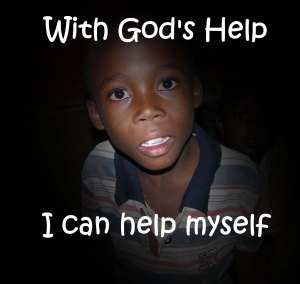 Roger
Roger
I thought it good to mention two specific outcomes from our team leaders’ meeting in East Africa.
 The first has to do with a discussion that lasted most of one day on how best to aid the poor. We coined the term “Organic Development” to describe a process that can literally change lives and nations from the inside out.
Let me first mention a couple of definitions:
The first has to do with a discussion that lasted most of one day on how best to aid the poor. We coined the term “Organic Development” to describe a process that can literally change lives and nations from the inside out.
Let me first mention a couple of definitions:
 This mission organization has raised up African church planting trainers that have been involved in some of the most powerful church planting movements on the continent. For example, in Ethiopia they have seen over 4,000 churches planted in five years. We were very happy to have Aila Tasse, from New Generations, join us for our time together allowing our team to develop synergistic relationships with him and the work of his organization. It will be exciting to see the potential as future cooperative trainings take place throughout East Africa.
So, that’s just a bit of the nuts and bolts of our leadership team outcomes. We are excited to see how God continues to use these dynamic leaders.
This mission organization has raised up African church planting trainers that have been involved in some of the most powerful church planting movements on the continent. For example, in Ethiopia they have seen over 4,000 churches planted in five years. We were very happy to have Aila Tasse, from New Generations, join us for our time together allowing our team to develop synergistic relationships with him and the work of his organization. It will be exciting to see the potential as future cooperative trainings take place throughout East Africa.
So, that’s just a bit of the nuts and bolts of our leadership team outcomes. We are excited to see how God continues to use these dynamic leaders.
 The first has to do with a discussion that lasted most of one day on how best to aid the poor. We coined the term “Organic Development” to describe a process that can literally change lives and nations from the inside out.
Let me first mention a couple of definitions:
The first has to do with a discussion that lasted most of one day on how best to aid the poor. We coined the term “Organic Development” to describe a process that can literally change lives and nations from the inside out.
Let me first mention a couple of definitions:
1. Relief: emergency aid to people in crisis. This applies to situations like Haiti where, earlier this year, an earthquake left people without food and critical supplies. This type of aid simply involves just giving what we can to help those in crisis.
2. Development: helping those in poverty to “develop” themselves by providing them with tools and/or resources that they can use to lift themselves. The challenge here is to help people in need without creating ongoing dependency. You want people to find freedom from their limitations and discover their own God-given dignity as they lift themselves up.
So, “Organic Development” involves helping people discover ways to help themselves in the natural process of transformation that takes place through discipleship and church planting. Just as the Gospel is passed relationally from one life to another, so organic development—the awareness of how to cooperate with God for blessing—is passed from one to another in the same manner. It begins with the one (discipler) who is already living into the truth, power, and practical abundance of the Gospel—worldview, values, faith, etc.—and then it is passed from that person to the next as part and parcel of the Gospel being passed on. It recognizes that good development always begins within a person who has embraced the kingdom truths that free him/her to cooperate with God in bringing increase and blessing. The Gospel (impacting both the spiritual and practical aspects of people’s lives) then spreads organically from one to the next like yeast through a lump of dough. It first impacts people on the inside, freeing them from their limitations, and then impacts their practical lives as they discover, through God’s leading, ways to step into greater practical abundance. In this process of development, there is still a place for outside resources to provide “seeds” which the poor can make use of to better their lives. But they first learn to recognize that God is the source of their betterment, and that their own efforts in cooperating with God’s leading is the primary key (as opposed to outside, ongoing gifts). Whew… I know that is a mouthful of information… But we are very excited to see these African leaders come up with this definition and then outline a process that can lead to this type of dynamic inner and outer transformation. The potential for this process is unlimited in seeing change take place first in people, then neighborhoods and regions. You can read a bit more here if you want. A second key outcome for these meetings was the networking that took place between our team members and a group called “New Generations.” This mission organization has raised up African church planting trainers that have been involved in some of the most powerful church planting movements on the continent. For example, in Ethiopia they have seen over 4,000 churches planted in five years. We were very happy to have Aila Tasse, from New Generations, join us for our time together allowing our team to develop synergistic relationships with him and the work of his organization. It will be exciting to see the potential as future cooperative trainings take place throughout East Africa.
So, that’s just a bit of the nuts and bolts of our leadership team outcomes. We are excited to see how God continues to use these dynamic leaders.
This mission organization has raised up African church planting trainers that have been involved in some of the most powerful church planting movements on the continent. For example, in Ethiopia they have seen over 4,000 churches planted in five years. We were very happy to have Aila Tasse, from New Generations, join us for our time together allowing our team to develop synergistic relationships with him and the work of his organization. It will be exciting to see the potential as future cooperative trainings take place throughout East Africa.
So, that’s just a bit of the nuts and bolts of our leadership team outcomes. We are excited to see how God continues to use these dynamic leaders. 
Add new comment